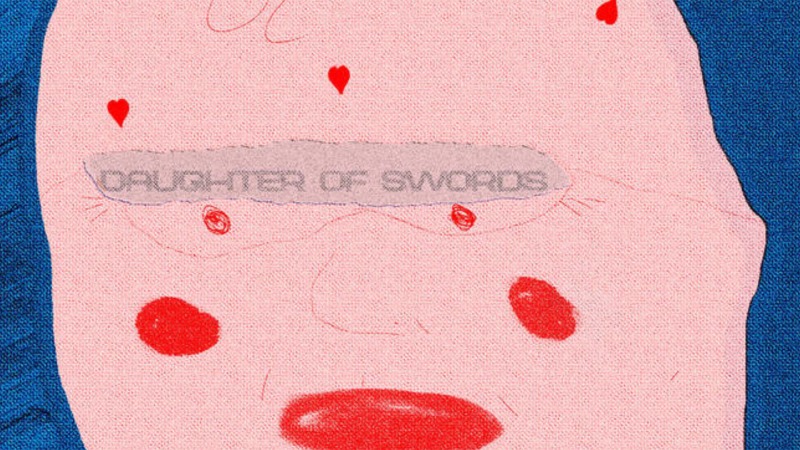Daughter of Swords Balances the Observational With the Personal on Alex
For an artist with roots in Americana and folk music’s traditions, Alex Sauser-Monnig’s sophomore album reads as distinctly modern, humbling us with tender vulnerability and holding space for playfulness.

What you might notice first on Alex, the sophomore record from Daughter of Swords, the project of Alex Sauser-Monnig, is discordance: From track to track, verse to verse, no two songs here sound alike in tone or texture. For an artist with roots in Americana and folk music’s traditions, Alex reads as distinctly modern, except on songs where it instead reads as retro, or on the ones where each of these flavors of past and present collide, like three dogs headbutting each other while scrambling for the same tennis ball.
Pay close attention, and that’s what you’ll likely hear second on Alex—not the delightful “bonk” of coconuts cracking together, but a certain playfulness Sauser-Monnig uses to thread the album into a cohesive whole. One moment, she’s invoking the hollowed out electric hum of synth-forward 1980s New Wave on tracks like “Hard On”; the next, she’s playing the best Courtney Barnett song that Courtney Barnett didn’t actually write, à la “All I Want is You”; then, she’s stripping away everything present elsewhere on the record that suggests exterior influences, holding space for herself that she can share with her listeners, like during the album’s penultimate track, “Song”—which does what it says on the tin by humbling us with Sauser-Monnig’s tender vulnerability. “Sing me a song to cry to / a song to live through,” she chimes gently on its final lines as she plucks away at her acoustic guitar.
-

-

-

-

-

-

-

-

-

-

-

-

-

-

-

-

-

-

-

-

-

-

-

-

-

-

-

-

-

-

-

-

-

-

-

-

-

-

-

-








































